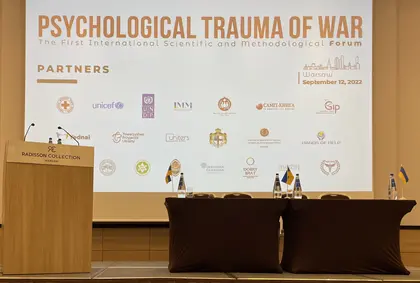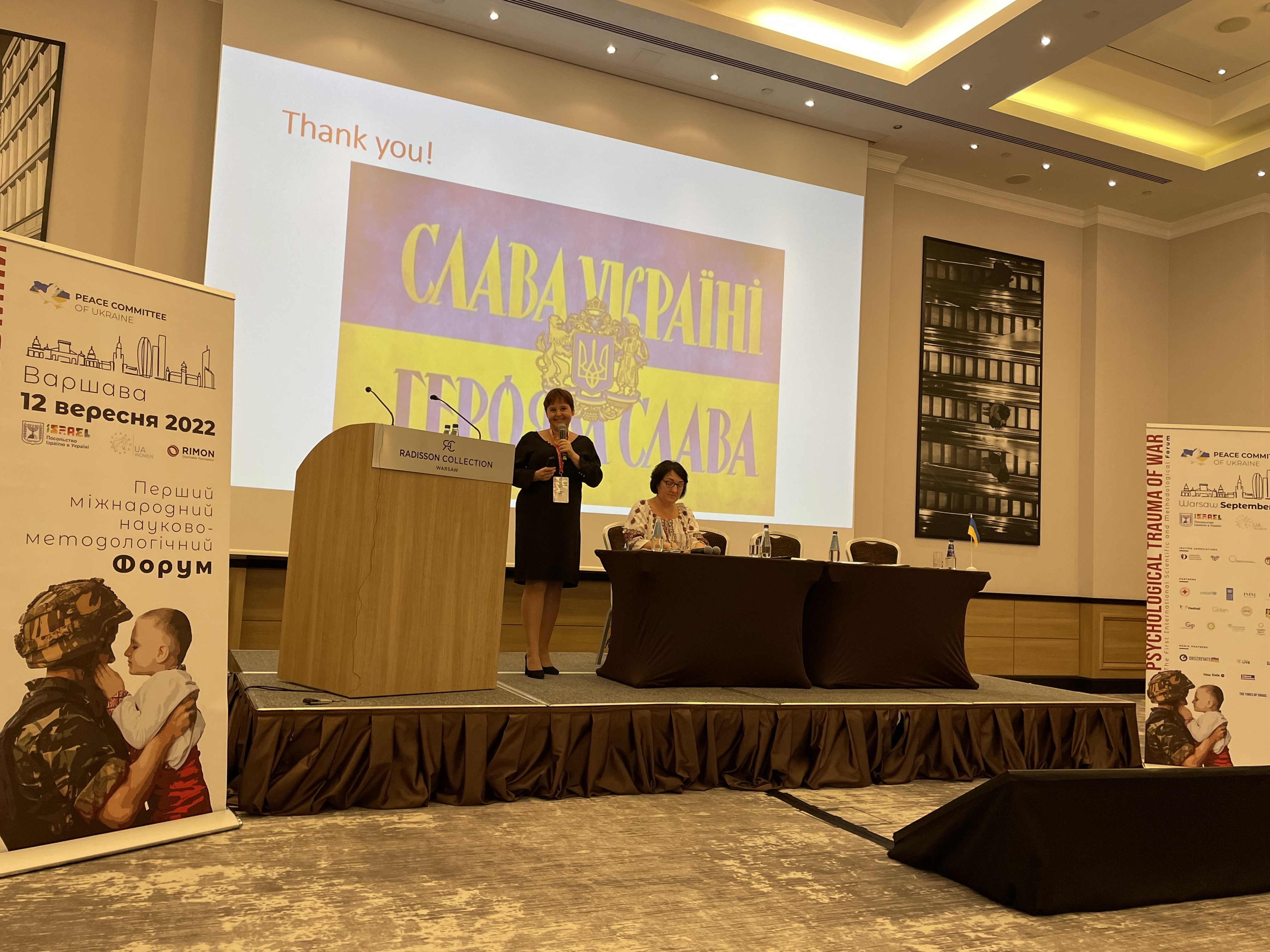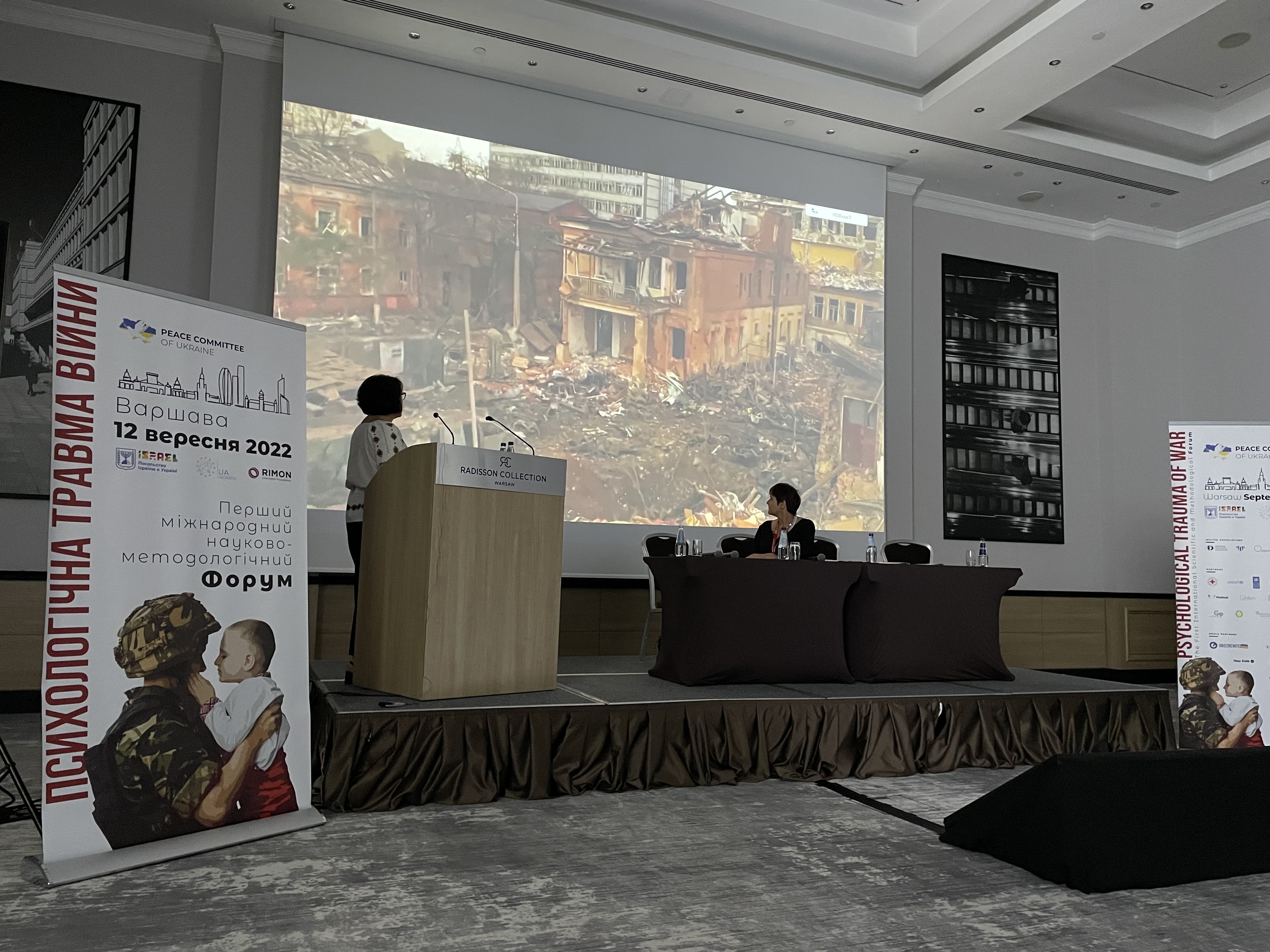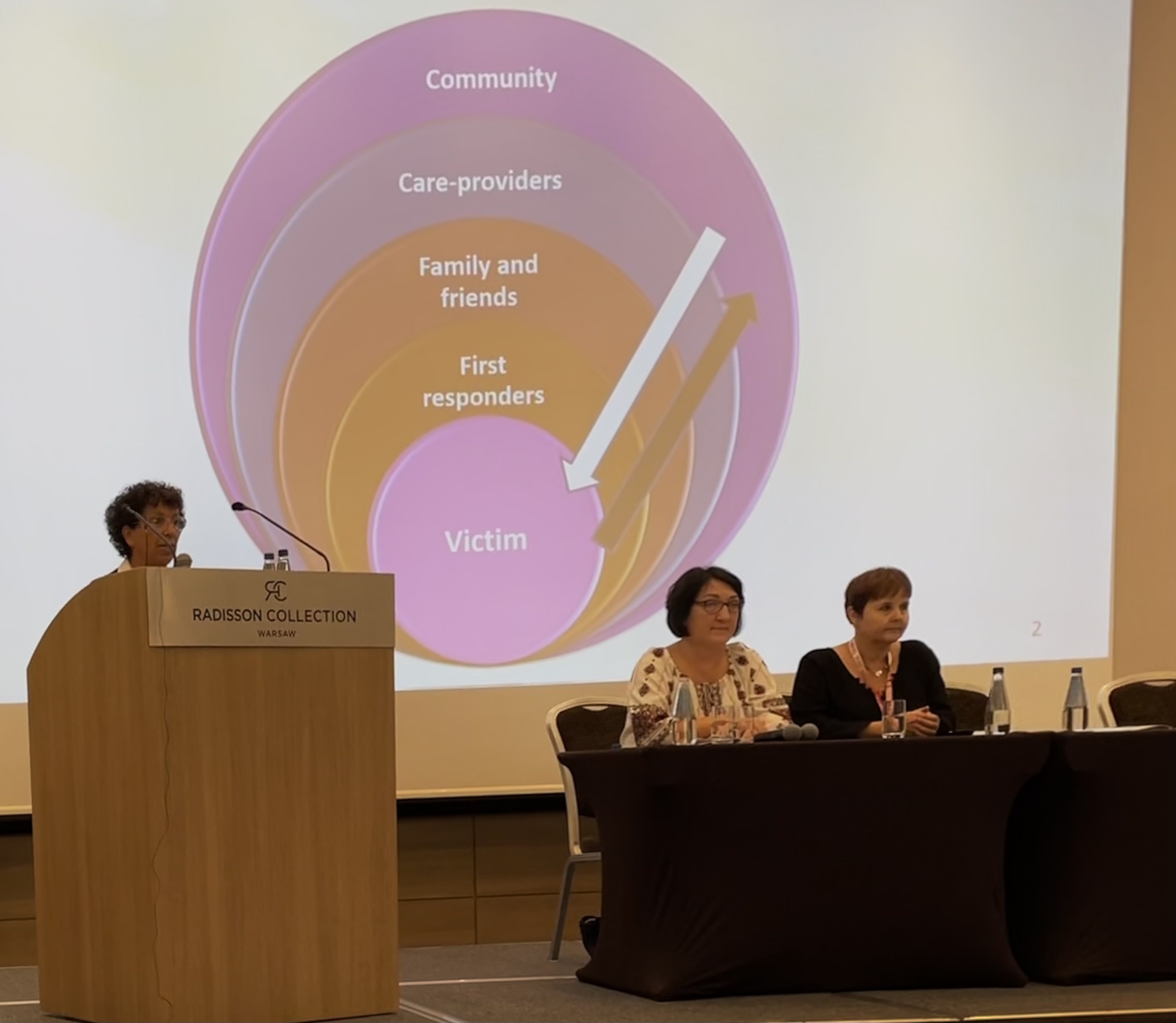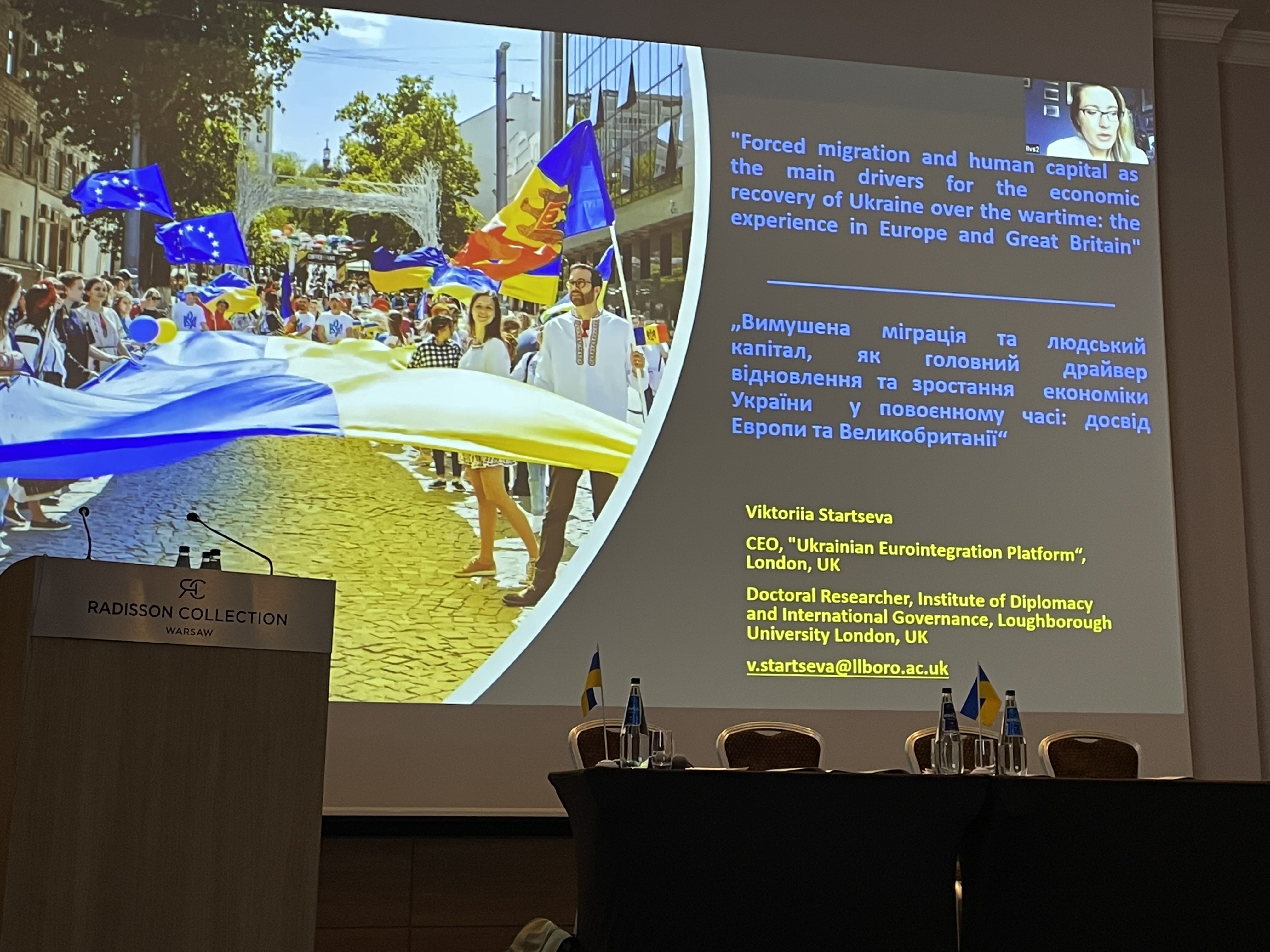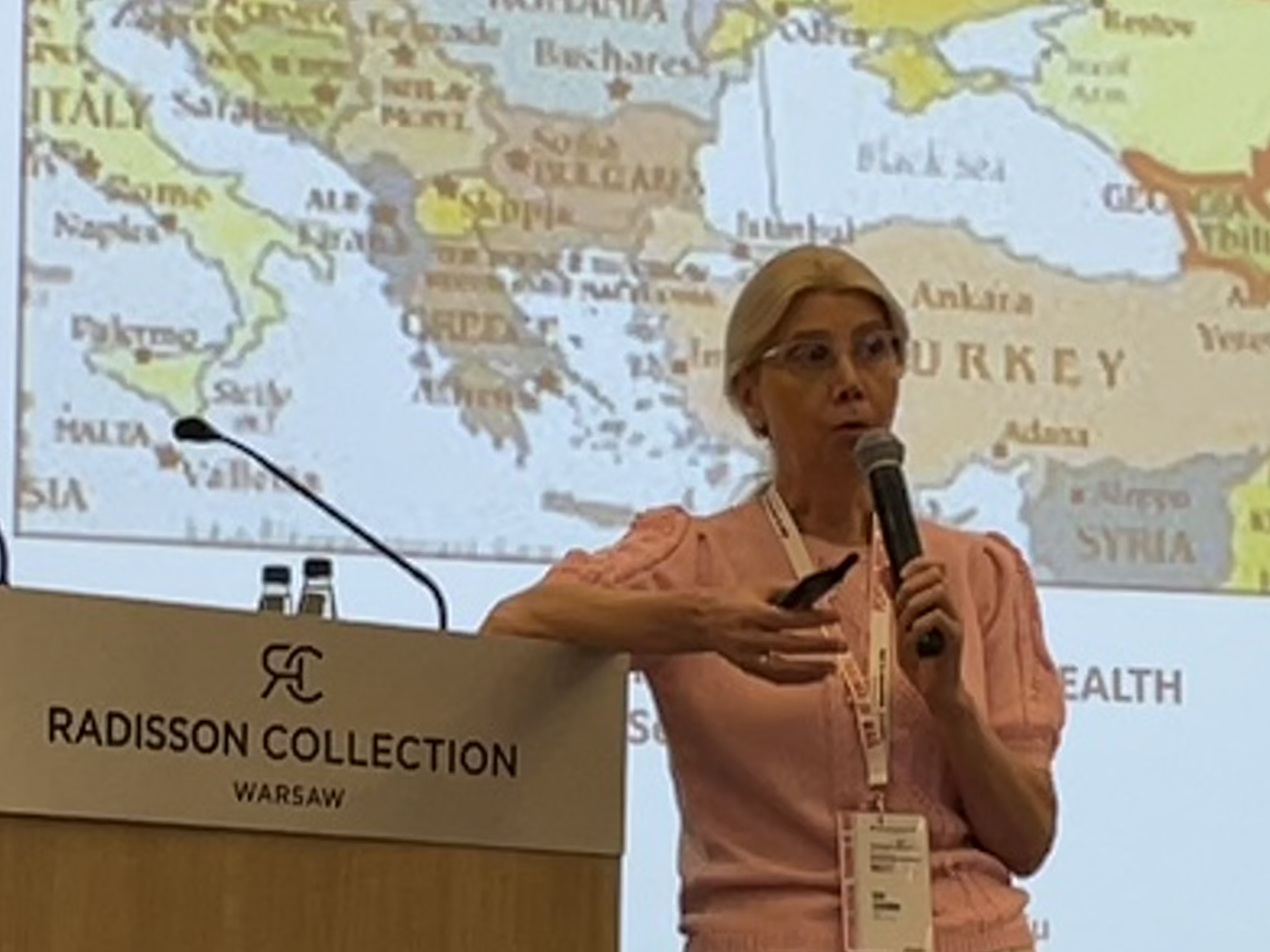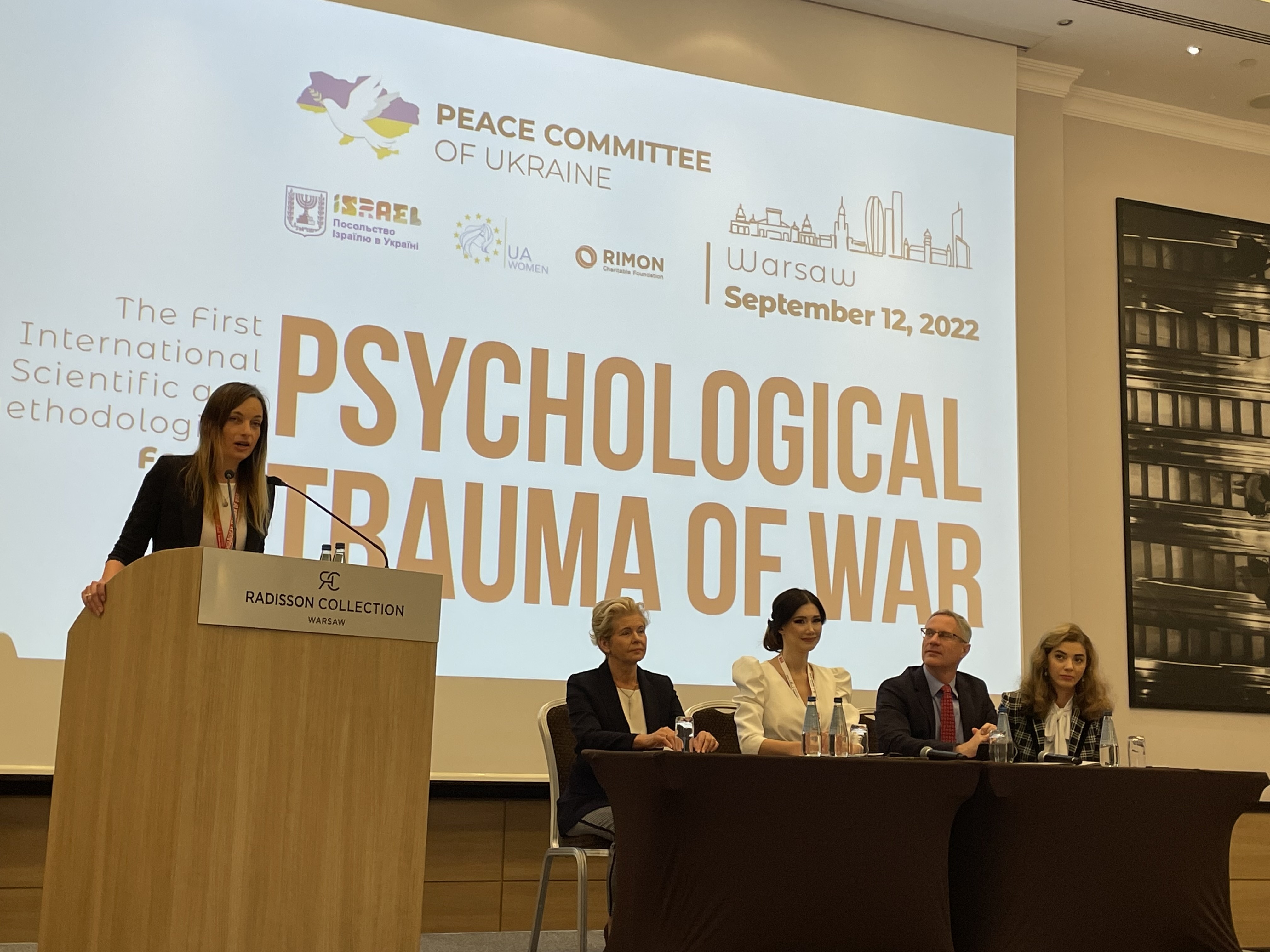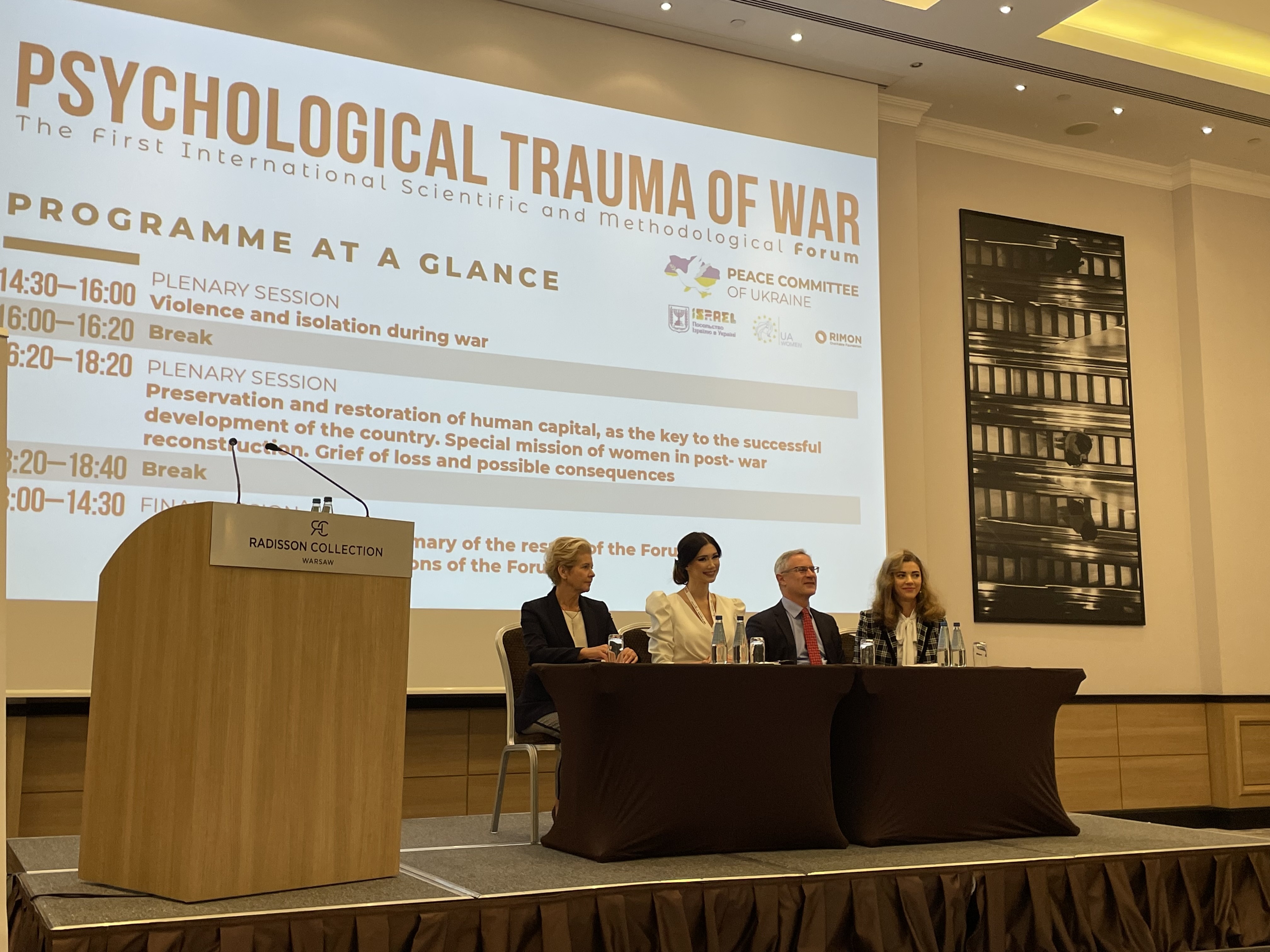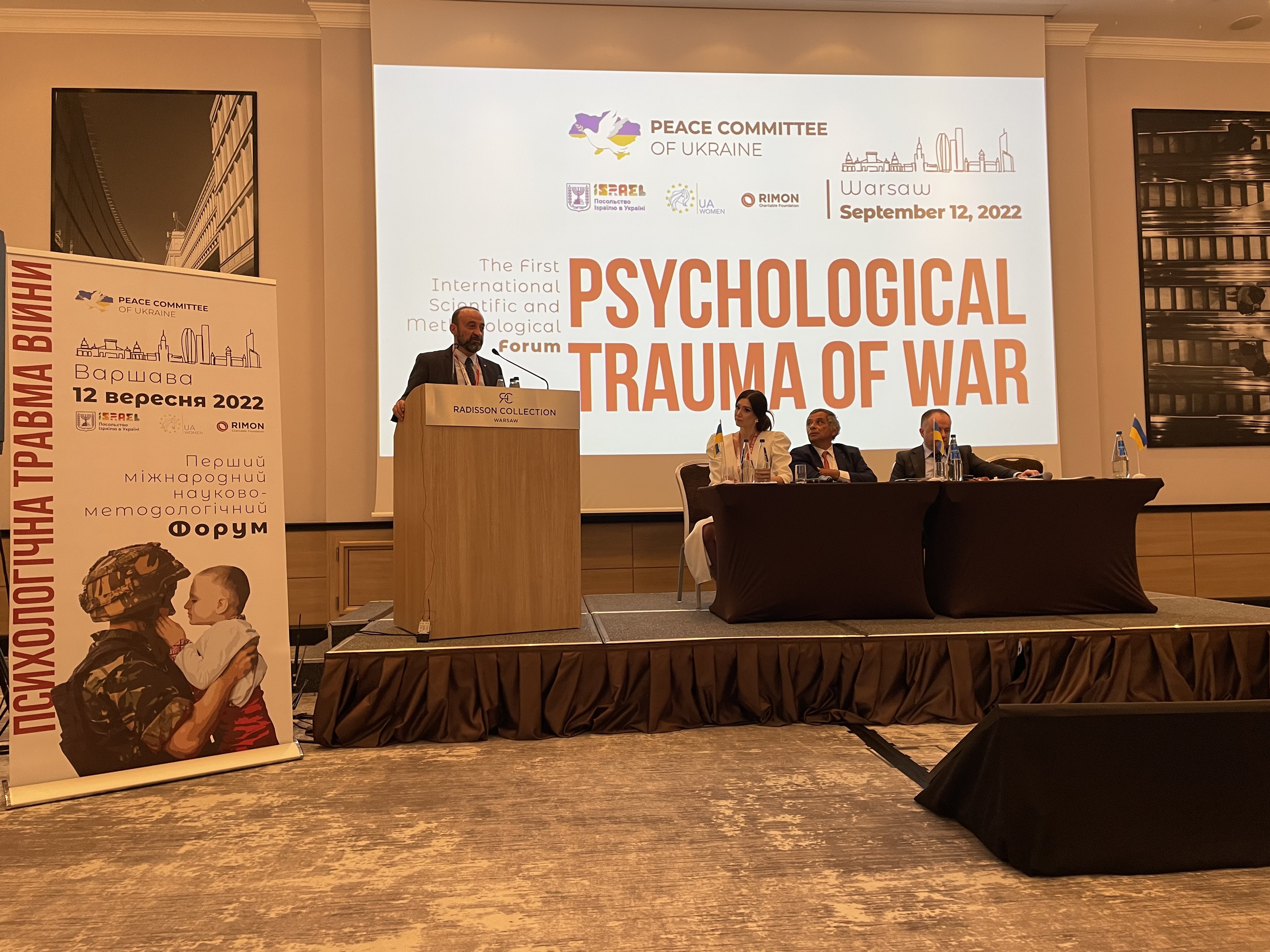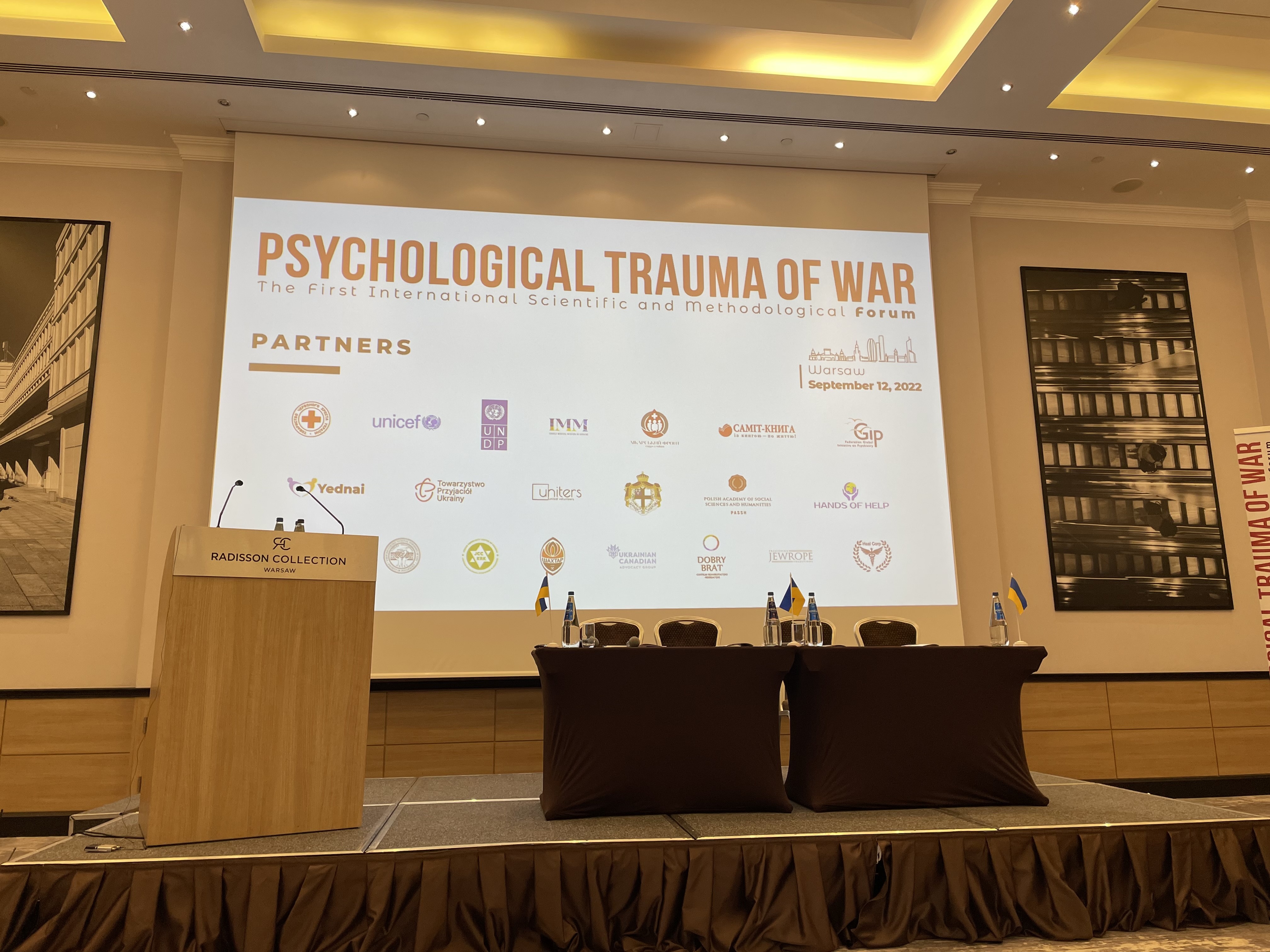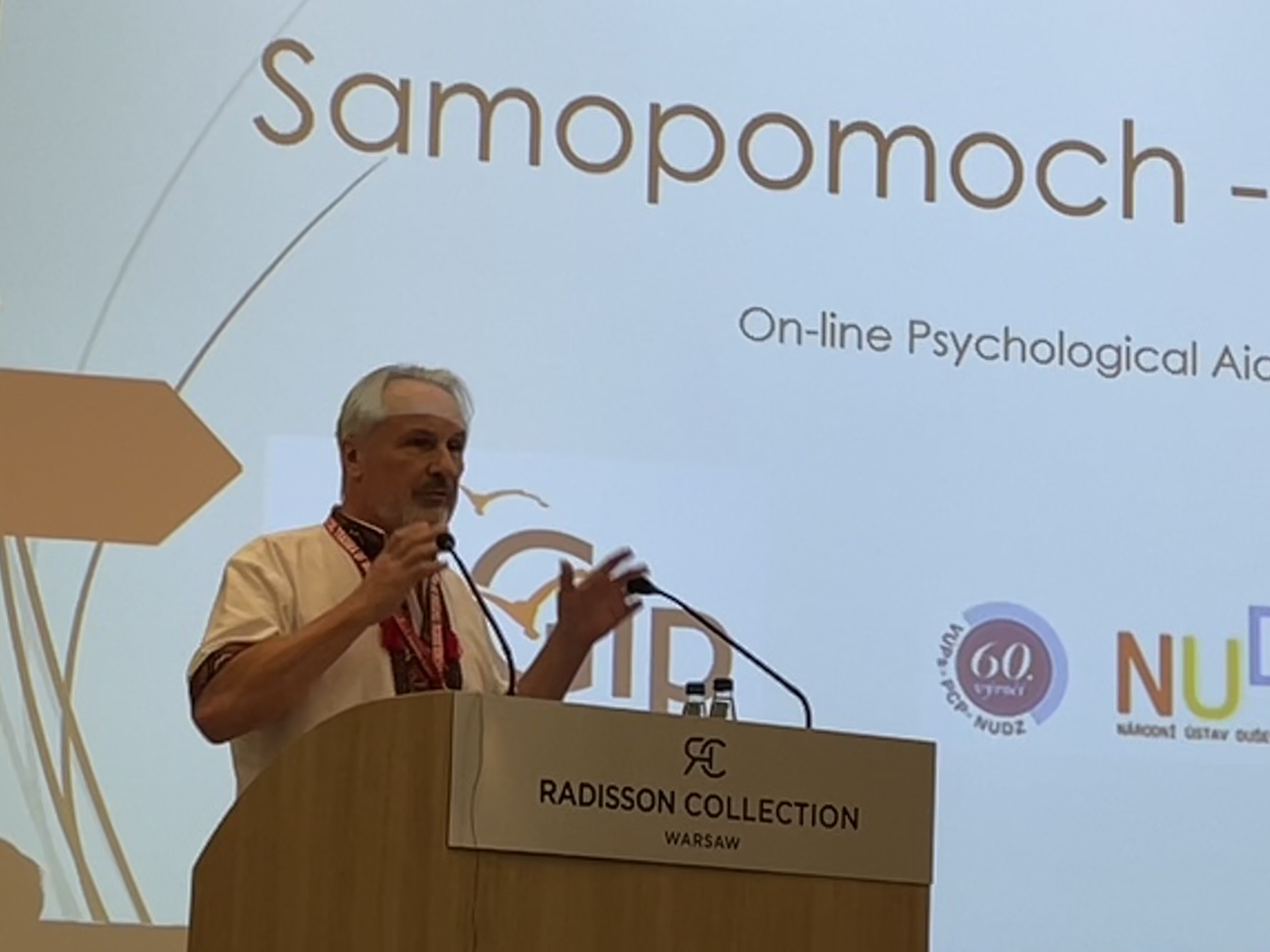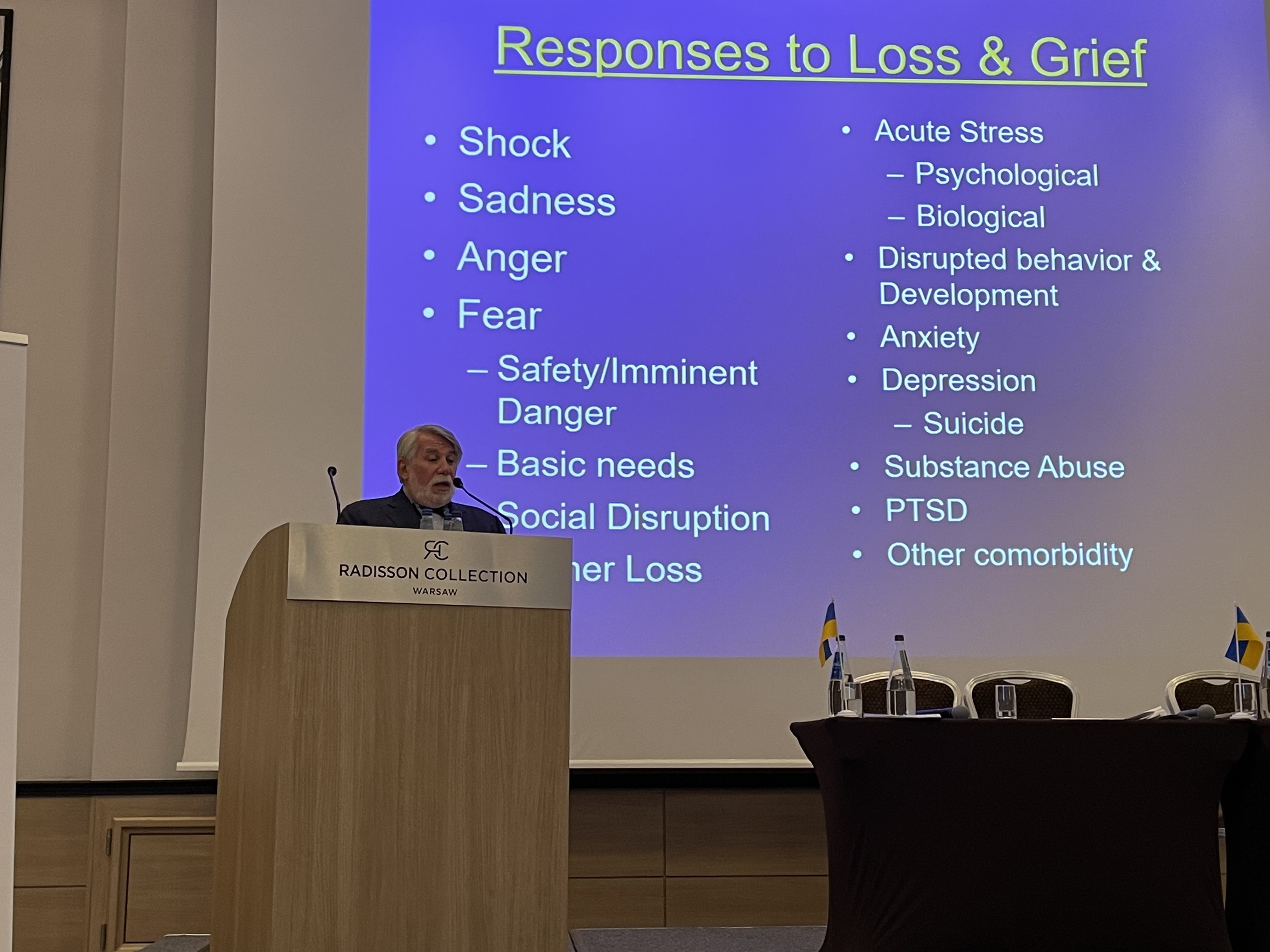The inaugural international scientific and methodological Forum, Psychological trauma of war, was held in Warsaw on Monday, Sep. 12.
It was held at the initiative of the Peace Committee of Ukraine, the Rimon charity fund for developing innovations in medicine, and UA Women, while Kyiv Post was a co-sponsor.
JOIN US ON TELEGRAM
Follow our coverage of the war on the @Kyivpost_official.
The forum brought together psychologists from Ukraine, the U.S., Poland, Italy, Sweden, Great Britain, Norway, Israel, Lithuania, and Georgia and created a platform for exchanging experiences of psychological support in crises for individuals in particular and society in general.
“We expect that in the course of a professional discussion, scientists, specialists, and experts could offer society, the authorities of Ukraine, and foreign partners real ways to eliminate the most acute psychological crisis in which Ukraine found itself as a result of Russia’s aggression,” said Yulia Hershun of the Peace Committee of Ukraine, the forum’s organizer.
The leitmotif of the forum was the search for an approach to solving the psychological disorders that arose among Ukrainians due to Russia’s full-scale invasion.
As Anna-Viktoria Vorontsova, an expert in social policy, noted, since February 24, Ukrainians have lived under the burden of a full-scale war, which had become a traumatic factor for many of them. Hence, the future of Ukraine depends on solving this problem.
The experience of Israel
Such conditions as apathy, hopelessness, and aggression have begun appearing more often among Ukrainians. According to experts, this is a normal reaction to an abnormal situation, but it must be worked through.
Experts from the Israel Trauma Coalition shared how they attain this in their country, where war has become a permanent occurrence. According to Talia Levanon, the CEO of ITC, it is essential to minimize the possibility of trauma developing. To accomplish this, Israeli hospitals immediately direct their activities to provide citizens psychological assistance immediately after an attack or escalation.
In addition, a whole network has been deployed in Israel to ensure psychological stability in society, involving the public sector, volunteers, the education and health system, community leaders, and the business sector.
“We should be a society of preparedness, in which everyone plays a role, where there are no passive people. No nation in the world will be fully prepared for crises. Israel is not an exception. However, we have a compass, following which we go along an endless road,” Max Hollenberg, director of international educational projects at ITC, emphasized.
International cooperation in providing psychological assistance to Ukraine
Poland became the backbone of Ukraine in many aspects related to the ongoing war. That is why this country, which is friendly toward Ukraine, has been of assistance when it came to solving the issue of ensuring and restoring the psychological well-being of Ukrainians.
Dominika Dudek, president of the Polish Psychiatric Association, noted that since the beginning of the full-scale invasion, their organization had supported Ukrainian psychologists and two Ukrainian psychiatric associations by providing them with the necessary humanitarian aid. The needs of Ukraine and the response to them are discussed during regular congresses of the PPA, where Ukrainian specialists and representatives of the Ukrainian Ministry of Health are also present.
Moreover, millions of fleeing Ukrainians have found shelter in Poland. During the presentation, Dominika Dudek shared data from the National Health Fund of Poland (NFZ), according to which, before June 2022, 1,502 forcibly displaced people from Ukraine, 442 of whom are children, turned to Polish specialists for psychological help.
Such a small number is explained by the language barrier, preoccupation with settling in a new country, and the absence of the culture among Ukrainians of turning to psychologists.
Lithuanian psychologists have also helped Ukraine. The day after the full-scale invasion, the creators of the Samopomich self-help psychological support internet page began to develop a Ukrainian version of the site. Robert Van Voren, general secretary of the international organization Global Initiative from Lithuania, explained that the resource was previously created for Belarusians who suffered repression during the uprising in 2020. However, after February 24, 2022, the number of requests from Ukrainians to the site increased significantly, which prompted the creation of a Ukrainian equivalent.
The website and social networks of Samopomich, which means self-help, contain information on how to act in situations of panic, anxiety, despair, and the like.
Impact of war on children
During the discussion, psychologists and psychologists repeatedly emphasized the importance of preserving the psychological health of future generations.
Dennis Origin, a consultant child and adolescent psychiatrist from the United Kingdom, shared the methods he uses to help the younger generations to overcome trauma.
“It’s important to give traumatized children the tools to control what happened, rather than being controlled by those events. Often, children have terrible dreams, so I suggest they change their ending and add a bright continuation.” Dennis Origin called drawing an essential technique for helping children because, according to him, “it helps kids get rid of nightmares and the influence of unpleasant memories.”
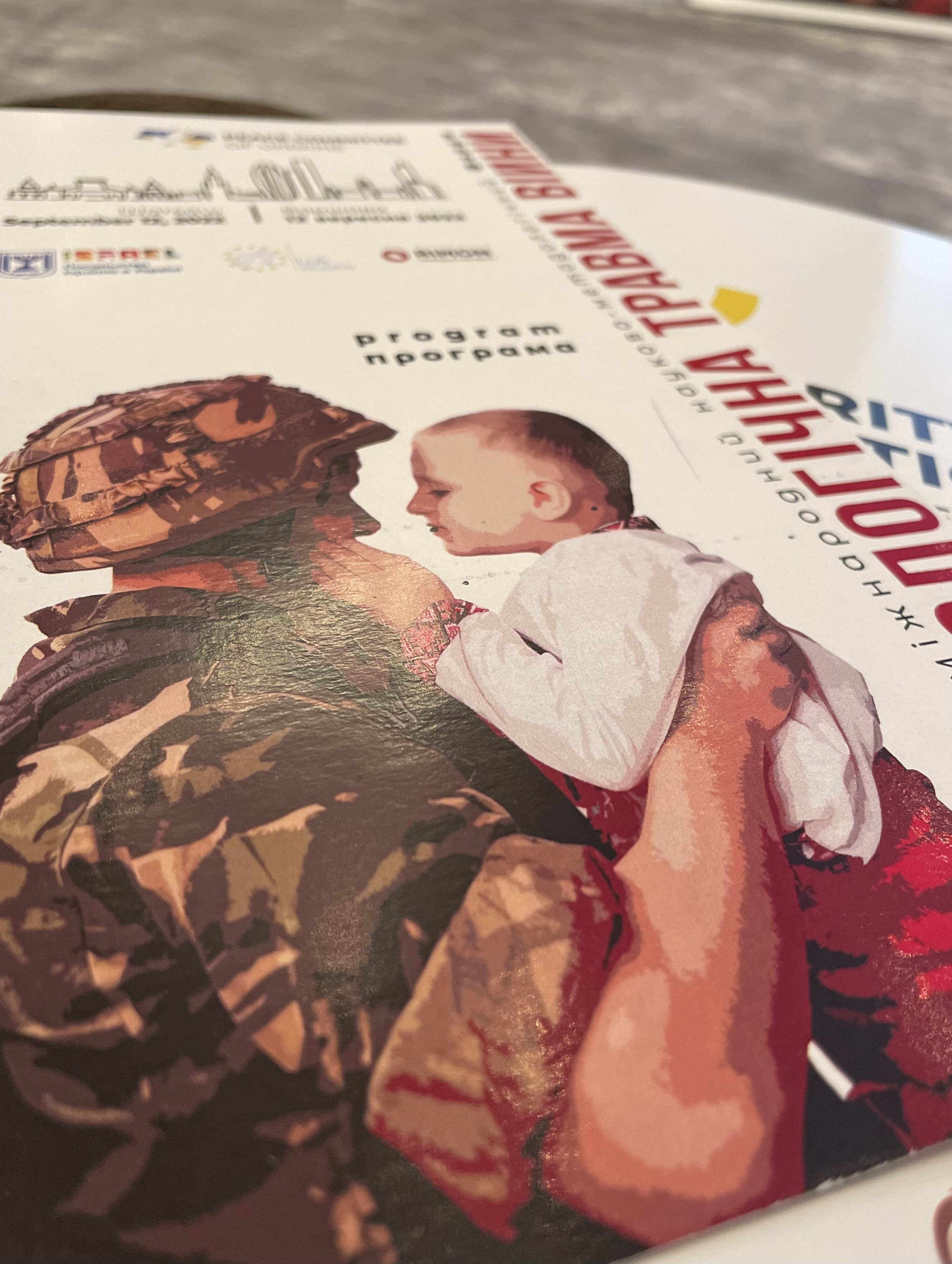
Psychological support for employees of municipal services
Since Russia began its war on Ukraine, 54 cases of kidnapping of representatives of local government agencies have been documented. Three people were killed, and others were tortured or harassed. Six local government workers are in captivity, mainly in the occupied Kherson Region.
“This forum can become a springboard to help release these people and provide them with rehabilitation,” said Oleksandr Slobazhan, director of the Association of Cities of Ukraine.
Representatives of local authorities were among the first to experience the horrors of war. Not only is a considerable responsibility put on their shoulders, but their lives are threatened too.
Local administration leaders are in daily contact with community residents, which is why they can provide those communities with everything they need.
Moral and psychological support for military personnel
Our psychological condition dramatically affects the quality of the work people do. Accordingly, Ukraine’s Armed Forces’ success depends on every combatant’s psychological state.
“Ukraine’s Armed Forces are not robots that do their tasks. First of all, they are empathetic people; they feel the entire range of emotions,” said Anastasia Harbaruk, an employee of the department of moral and psychological support.
She raised the issue of the insufficient number of military psychologists in the ranks of Ukraine’s Armed Forces. According to her, many commanders do not see the need for psychological support and so do not hire the relevant experts. Anastasia Harbaruk noted that this was the Soviet Union’s way of looking at the issue.
“It’s not just shelling that makes people die in war. Many people, after returning home, commit suicide and die of heart attacks,” she emphasized.
The Ukrainian Center for Military Leadership deals with forming, developing, and supporting military leaders. Oleksandr Polishchuk, head of the State Medical and Psychological center of the Bukovyna Medical University, said that training for commanders is conducted, during which they learn how to set tasks correctly so that everyone understands what they are expected to do in stressful moments. He noted that thanks to proper communication between the military, the level of trust increases as stress decreases.
Helpers also need help.
Close attention at the forum was paid to the psychological state of not just victims but also their environment, the team, and psychological help for workers and volunteers.
Tamila Levanon presented a diagram called Circles of impact and support, which depicts the transition of trauma from an individual victim to society. It confirms the need for psychological help for every member of the community. The President of the Polish Psychiatric Association, Dominika Dudek, emphasized this too.
“Those who help also need help. So psychologists have to fight burnout syndrome as well,” she stated.
A country of psychological trauma
An essential part of treating a psychological disorder is awareness of its symptoms. Manifestations of war’s most common psychological traumas and ways to overcome them also became a necessary part of the discussion. Experts noted PTSD, addiction, prolonged grief disorder, and unreasonable anxiety as conditions of this widespread illness.
However, as an American professor of child and adolescent psychiatry, Bennett Garis, underlined, all people lose something during the war. Yet, not all will have severe psychological disorders.
“Approximately 25% of war victims will develop PTSD, but 75% will not.”
“However, this does not negate the problematic nature of the situation. Grief is a common response to the loss of someone or something. Losses multiply during a war: loss of home, family, pets, friends, and school. Without a proper response to this, similar to PTSD symptoms begin to develop,” the professor said.
Overcoming psychological trauma is necessary for Ukrainian society to be able to develop further. The forum in Warsaw launched an expert discussion on developing solutions for healing collective psychological trauma and building a psychologically healthy post-war Ukrainian society.
You can also highlight the text and press Ctrl + Enter


